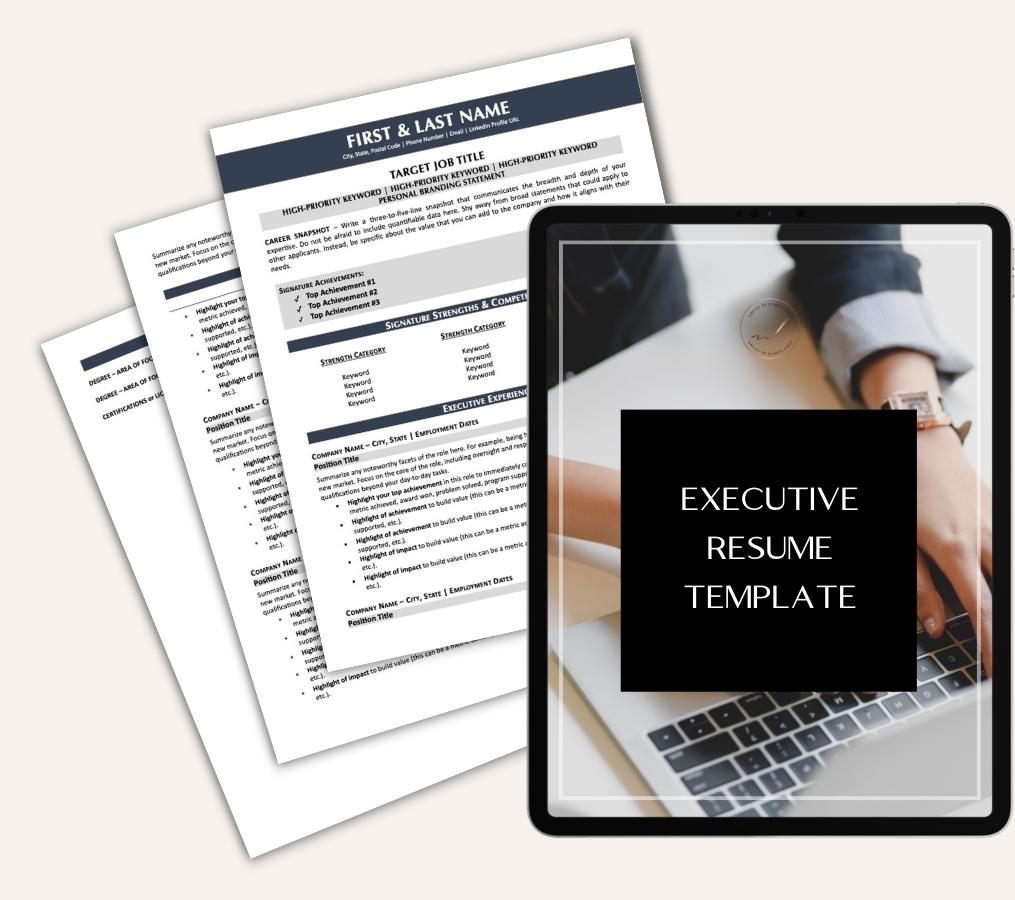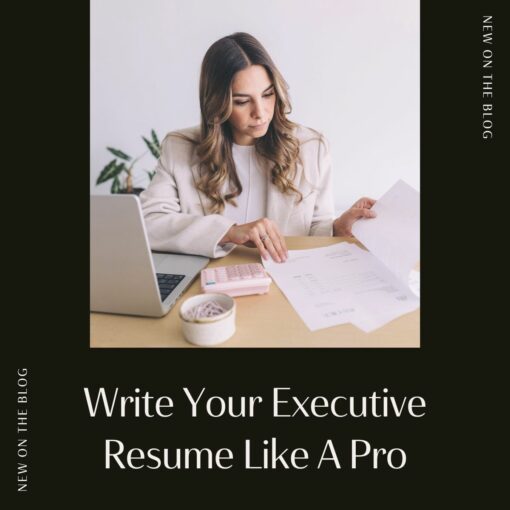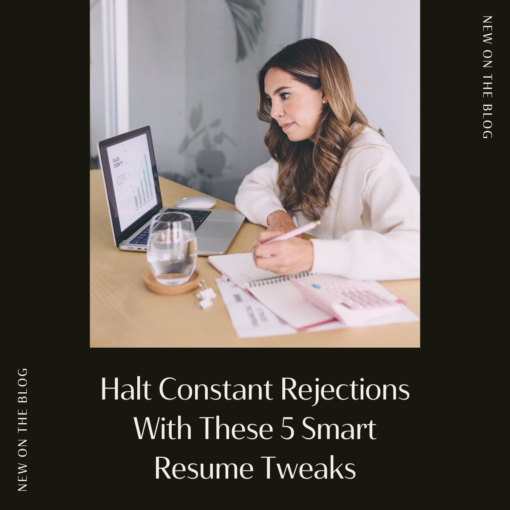How Has Resume Writing Changed in the Last 10 Years?
It’s funny how I get calls from clients sometimes and they say something along the lines of: I haven’t written a resume in 10 to 15 years, and the resume world has changed so much I have no idea what one is supposed to look or sound like. How true, I say. Professional resume writing has changed so much—even in just the last five years—never mind the last 10!
I can remember when every professional resume had the same objective: “To obtain a position where my experience and education will benefit an organization.” Thank goodness those days are long gone…how much more generic could we have been? That objective doesn’t say anything to hiring managers about what you actually bring to a position. But I still get people asking me, “Should you write a resume objective?” The answer is, sort of, and that’s one of the questions about changes in resume writing I’ll address below.
If you haven’t written a professional or executive resume in the past 10+ years, there are a few key changes that you should keep in mind as you refresh your resume for the modern era. Let’s take a look at the top five that I have identified in my work as a professional resume writer and human resources professional:
1) Personal Branding Is Crucial
There is a reason the generic objective statement just doesn’t cut it anymore, especially at the executive level. Hiring managers want to know who you are and what makes your skill set and professional experience best suited to their company’s needs. In other words—it’s all about personal branding. YOU are the product. You’re marketing yourself to the employer. Just as Coke and Pepsi are both sodas but completely different types and brands, whatever it is that you do may be the same position as someone else, but you’re a very different candidate. Your potential employer is your audience, and you need to make them remember you and your personal brand. Start by asking yourself questions like: What makes you distinguishable? Employable? Better than the other guy? Then, communicate that clearly via your resume. The key to building your personal brand and to conveying that on your resume is to focus on what differentiates you from your competition.
If you have an extensive LinkedIn, social media, or other online presence that showcases your personal brand or role as a thought leader or industry expert, don’t just assume a hiring manager or recruiter will take the time to look that far if your resume doesn’t showcase a personal brand that they are interested in. Establishing your personal brand will help you distinguish yourself now, getting the attention of potential employers, but can also be a big contributor to your long-term success. Building your brand will help you establish authority in your field, and give you a strong base to build on as you look further down the line at advancing your career. Creating a personal brand might seem time consuming now, but it will pay off for you.
2) Good-bye Job Duties, Hello Accomplishments
Your resume should no longer be primarily about listing the duties that your job entailed, but instead clearly point out the key accomplishments that you achieved while carrying out those duties. By just listing out duties or responsibilities, you’re leaving it up to human resources or recruiters to guess at what you might have achieved. You don’t want them guessing at how you can help a business, you want them to know.
Plus, I can guarantee you that other people applying for the job you want have had similar job duties and they are probably writing them out on their resume. What they don’t have—that will set you apart—are your specific achievements like impressive revenue growth, sales numbers, big clients worked with, or creative achievements.
That’s why your resume, especially an executive resume, needs to be about clearly communicating results and how those results differentiate you and your personal brand. Your resume shouldn’t read like a long job description. It should showcase your more notable professional achievements and tell your target audience—potential employers and recruiters—why you are the best choice for them.
3) Keywords, Keywords, Keywords!
Keywords are a must in the 21st century job market. Ten years ago you probably weren’t sitting online, uploading your resume and cover letter and clicking apply all day. Today, though, you’ll be using applicant tracking systems, online job boards, and LinkedIn to find a new position. And employers now use software that searches your resume—even an executive resume—for specific keywords related to the position for which you are applying, so make sure you have the right keywords in your resume. If you don’t use the right keywords, it is likely that no matter how qualified you are for a position you won’t make it past the initial screening stage and get the interview you want.
Using keywords doesn’t mean your resume has to be boring and cliché, though. Take your time crafting descriptions and creating a resume format that get the attention of your audience, convey the message you want to, and still have the ability to get through an applicant tracking system.
Looking for inspiration to get started with keywords? Check out my article on the subject here: https://greatresumesfast.com/ultimate-guide-to-resume-keywords/. Search the blog posts archive on the Great Resumes Fast website to find even more info about using keywords effectively on your resume.
4) Get Focused and Tailor Your Resume
Being relevant and focused is key to the success of your resume. Don’t write a resume that can apply to five different types of opportunities. Narrow it down to one opportunity; focus on that one, and use that resume to apply to relevant jobs. Create more than one resume so that you have several at the ready to use for different opportunities; I suggest one for each different type of position you’ll be applying to. Tweak how you communicate your personal brand, your accomplishments, and your skill set to fit each individual position. This is where a master resume would come in handy. Start with a master resume, then pick and choose what to focus on for customized, focused resumes, and adjust wording as needed to speak directly to the job opening or business the resume is being used for.
5) Ditch the Old-Fashioned Objectives and Summaries
As I briefly addressed at the beginning of this article, generic objectives and career summaries are pointless. They are essentially a waste of crucial space on a limited resume format and a waste of your time. Instead, craft your summary using targeted job search titles, branded one-liners, and a keyword-rich career summary. You can even think of your career summary as a personal brand statement.
When you’re writing a career summary / personal brand statement, don’t fall back on clichéd terms that do nothing to set you apart. Sure, some keywords are commonly used across resumes and might seem cliché, but using the right ones in the right way is far more effective than simply copying a phrase that sounds good from a resume sample you find online. Make sure your career summary actually says something. This is rarer than you might think, and when it happens, a hiring manager will be impressed to see it. A well-written, descriptive career summary is a key part of conveying your personal brand and can do wonders to grab the attention of a hiring manager or recruiter.
I’m sure resumes have changed in other ways over the past 10 to 15 years, but these five are the most important, fundamental changes you need to be aware of if you’re going to create a more effective resume for today’s world that will set you up for long-term success. However, I will also mention that another point to consider is how far back into your work experience you want to go on your resume. Ten to 15 years is industry standard; any further, and you’re really starting to date yourself.
Baffled by all the changes? Or looking for some help updating your resume? Maybe you’ve never needed a resume because people have always come to you; but maybe now all that has changed. I’m here to help you, and my team of certified professional resume writers know exactly what your resume needs to start generating interviews. We’ll have a conversation with you to suss out your goals and start building a personal brand for you before we begin writing your resume. Our goal as resume writers is to help improve people’s lives by helping them advance their career and achieve their goals. That’s why we will never take a cookie cutter approach to your resume.
Are you tired of your resume being rejected by applicant tracking systems? I know how frustrating it is to submit your resume and receive no response. I hate seeing qualified people never breakthrough the screening process. It shouldn’t be that way. That’s why I created this guide and I encourage you to download the FREE PDF so you can start seeing better resume response rates!
Share this post:

About the author
Jessica Hernandez, President, CEO & Founder of Great Resumes Fast
Hi, I’m Jessica. I started this company back in 2008 after more than a decade directing hiring practices at Fortune 500 companies.
What started as a side hustle (before that was even a word!) helping friends of friends with their resumes has now grown into a company that serves hundreds of happy clients a year. But the personal touch? I’ve kept that.
You might have seen me featured as a resume expert in publications like Forbes, Fast Company, and Fortune. And in 2020, I was honored to be named as a LinkedIn Top Voice of the year!
I’m so glad you’re here, and I can’t wait to help you find your next perfect-fit position!
9 Comments
Leave a Comment
Improve Your Resume: Download Your Free Executive Resume Template Today
Are you struggling to create an executive resume that will impress employers? Download this free executive resume template and receive a series of 10 emails with expert guidance on how to write resume content that resonates with employers so you get more interviews.
It's everything you need to stand out, make an impression, and accelerate your job search.









To me the biggest change is that we are dealing with primarily online readers — and online reading requires resume to be more succinct with more white space than ever.
That is another great point too! Thanks Virginia!
It isn’t about a list of duties anymore. Job description should show your achievements with numbers or that you increase sales or something like that.
[…] Holbrook Hernandez, resume expert, agrees that resume writing has changed in the past 10 years. But there is one thing in resume writing that remain unchanged—the 3 resume types by format: […]
[…] Holbrook Hernandez, resume expert, agrees that resume writing has changed in the past 10 years. But there is one thing in resume writing that remain unchanged—the 3 resume types by format: […]
A few questions:
1. Should you include a picture? If so, should it just be a headshot?
2. People switch jobs more often now. Do employers still want to see dates of employment.
3. For community service, is it necessary to provide your duties?
Thanks
Does anyone have any insight into *why* these changes have occurred, and how?
ALL YOU PEOPLE ARE INFURIATING!!! Not everyone is in sales or sitting around writing computer programs that ‘change the world.’ How does a security officer or maintenance worker define info in terms of percentages and such. This closed-minded ‘advice’ is BS and only applies to part of the population. Every job is not in a corporate setting full of BS verbiage!
I got stumbled with the content while coming across the article it’s really very informative. Thanks for sharing the blog with us. Looking forward to more updates.